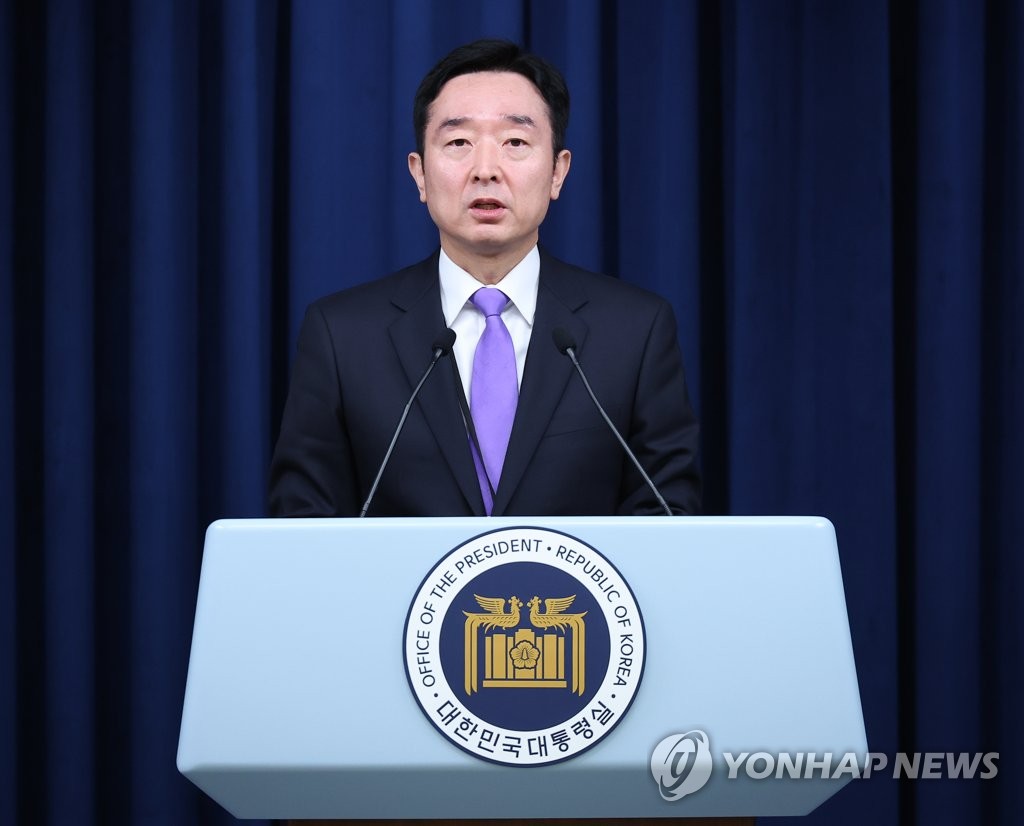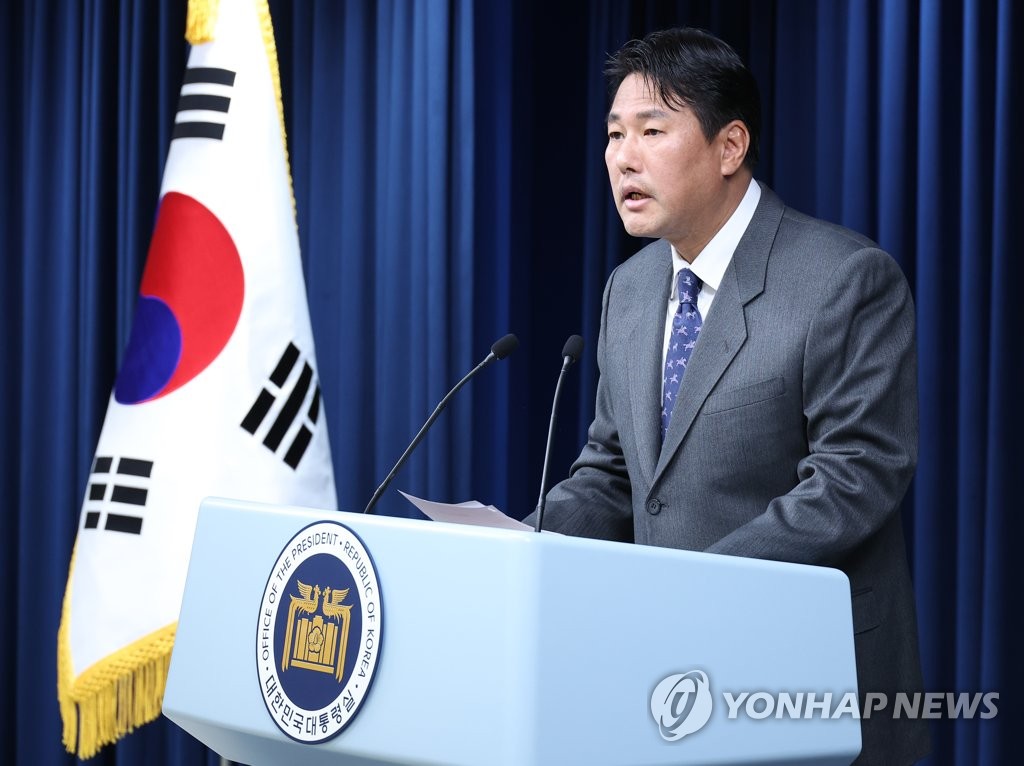- California Assembly OKs highest minimum wage in nation
- S. Korea unveils first graphic cigarette warnings
- US joins with South Korea, Japan in bid to deter North Korea
- LPGA golfer Chun In-gee finally back in action
- S. Korea won’t be top seed in final World Cup qualification round
- US men’s soccer misses 2nd straight Olympics
- US back on track in qualifying with 4-0 win over Guatemala
- High-intensity workout injuries spawn cottage industry
- CDC expands range of Zika mosquitoes into parts of Northeast
- Who knew? ‘The Walking Dead’ is helping families connect
Yoon says forced labor decision aimed at moving toward future-oriented relationship with Japan
President Yoon Suk Yeol said Monday that South Korea’s decision to compensate wartime forced labor victims without Japanese firms’ involvement was a determination aimed at moving toward a future-oriented relationship with Japan, his spokesperson said.
Yoon made the remark during his weekly meeting with Prime Minister Han Duck-soo after the foreign ministry announced the plan to compensate the victims through a foundation supported by South Korean businesses, not the Japanese firms accused of forced labor during World War II.

“The announcement today of the solution to the issue of the rulings on forced conscription despite various difficulties was a determination aimed at moving toward a future-oriented relationship between South Korea and Japan,” Yoon was quoted as saying by presidential spokesperson Lee Do-woon.
“In order for the South Korea-Japan relationship to enter a new era, the two countries’ governments need to make an effort to help future generations play a pivotal role,” he said, according to Lee during a press briefing.
Han responded that the government will work to expand projects that increase exchanges between teenagers and college students of the two countries, and speedily push for cooperation projects across all sectors, including culture, foreign policy, security, business and global affairs.
The forced labor issue has long been a thorn in bilateral relations after South Korea’s Supreme Court ordered two Japanese companies in 2018 — Nippon Steel and Mitsubishi Heavy Industries — to pay compensation to the Korean victims.
Japan has maintained that all issues of compensation were settled under a 1965 treaty that normalized bilateral ties after its 1910-45 colonial rule of the Korean Peninsula.
Following Seoul’s announcement Monday, Japanese Foreign Minister Yoshimasa Hayashi told reporters in Tokyo that the Japanese government “inherits on the whole” the historical perceptions of past administrations, including a 1998 joint declaration adopted by then President Kim Dae-jung and then Japanese Prime Minister Keizo Obuchi.
In the declaration, the two leaders called for overcoming the past and building new relations, with Obuchi expressing remorse for the “horrendous damage and pain” Japan’s colonial rule inflicted on the Korean people.
“We assess the Japanese government’s expression of its position that it will work from various angles for the future-oriented development of bilateral relations while reaffirming the position of regret and apology that it has expressed until now over the past,” deputy national security adviser Kim Tae-hyo told reporters.
South Korea and Japan share the values of a liberal democracy, the rule of law and the market economy, and the Yoon administration will pursue common interests with the neighboring country while working together for regional and world peace, Kim said.
“We hope from now on the two countries will make an effort to overcome the unfortunate history and develop a future-oriented relationship,” he added.












